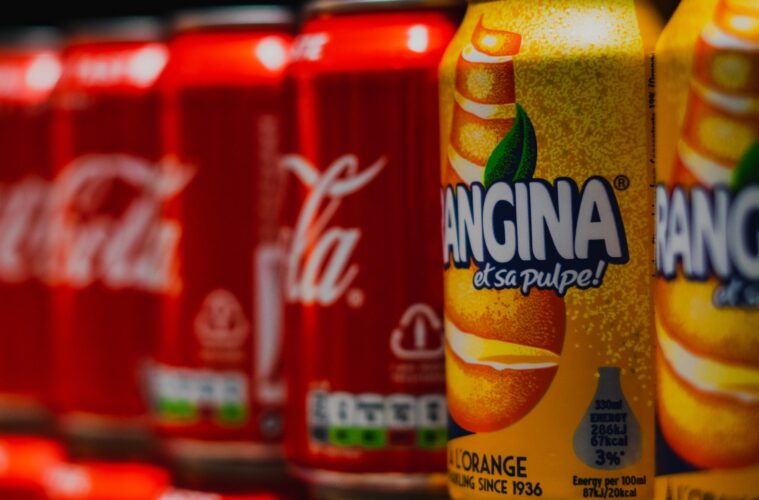Fizzy drinks, also known as carbonated beverages or soda, have been a popular beverage choice for decades. They come in a variety of flavours, from colas to fruity options, and are often enjoyed by people of all ages. However, the question remains: Are fizzy drinks bad for you? This article will delve into the health effects of consuming carbonated beverages, exploring the potential risks and benefits associated with these bubbly drinks.
Are Fizzy Drinks Bad for You?
The Ingredients
Fizzy drinks typically contain carbonated water, sweeteners, flavourings, and sometimes caffeine. The primary concern with these beverages lies in the added sugars, artificial ingredients, and the carbonation itself.
1. Sugar Content:
One of the major drawbacks of fizzy drinks is their high sugar content. A typical 12-ounce can of soda can contain up to 39 grams of sugar, which is equivalent to about 9.75 teaspoons. Consuming excessive amounts of added sugars has been linked to various health problems, including obesity, type 2 diabetes, and heart disease. Furthermore, sugar-sweetened beverages are often referred to as “empty calories” because they provide little to no nutritional value.
2. Artificial Ingredients:
Many carbonated beverages contain artificial flavours, colours, and preservatives. These additives have raised concerns about their potential health effects, as some studies have linked them to adverse reactions in certain individuals. However, the evidence is inconclusive, and more research is needed to draw definitive conclusions about their safety.
3. Carbonation:
The fizziness in these drinks is due to carbonation, which involves dissolving carbon dioxide in water. While carbonation itself is not harmful, it can lead to issues when it comes to dental health. Carbonated drinks are often acidic, which can erode tooth enamel, leading to cavities and dental problems.
The Health Risks
1. Weight Gain and Obesity:
As previously mentioned, fizzy drinks are often high in sugar, and excessive sugar intake is strongly associated with weight gain and obesity. Consuming too many sugary beverages can lead to an increase in calorie intake without providing a feeling of fullness, which can lead to overeating and weight gain.
2. Type 2 Diabetes:
The consumption of sugary drinks, including carbonated beverages, has been linked to an increased risk of developing type 2 diabetes. The high sugar content can lead to insulin resistance and impair the body’s ability to regulate blood sugar levels.
3. Heart Disease:
Excessive sugar intake can contribute to various risk factors for heart disease, such as high blood pressure, inflammation, and obesity. Regular consumption of fizzy drinks has been associated with an increased risk of cardiovascular problems.
4. Dental Health:
The acidity and sugar in carbonated beverages can be particularly harmful to dental health. Over time, the erosion of tooth enamel can lead to cavities, tooth decay, and other oral health issues.
The Benefits
While there are certainly health risks associated with fizzy drinks, it’s worth noting that not all carbonated beverages are created equal. Some variations may have certain benefits:
1. Low-Calorie and Sugar-Free Options:
Many companies now offer diet or sugar-free versions of their carbonated beverages. These options are sweetened with artificial sweeteners and contain fewer calories, making them a better choice for those looking to reduce their sugar intake.
2. Satiety:
The carbonation in fizzy drinks can sometimes create a feeling of fullness or bloating, which may temporarily reduce one’s appetite. This can be helpful for those trying to control their food intake.
3. Caffeine Content:
Some carbonated beverages, such as colas, contain caffeine. In moderation, caffeine can provide a mild energy boost and improve alertness. However, it’s essential to monitor caffeine consumption to avoid overstimulation.
Conclusion
Are fizzy drinks bad for you? The answer is a nuanced one. While carbonated beverages, especially those high in sugar, have been associated with various health risks like obesity, type 2 diabetes, heart disease, and dental problems, there are also some potential benefits, such as low-calorie and sugar-free options, temporary satiety, and caffeine content.
To make an informed decision, individuals should consider their overall diet, health goals, and lifestyle. Reducing or eliminating the consumption of sugary, high-calorie carbonated beverages is advisable for those seeking to improve their health. Choosing water, herbal teas, or natural fruit-infused water can be healthier alternatives to satisfy one’s thirst. In the end, moderation and informed choices are key to enjoying fizzy drinks without compromising one’s health.

